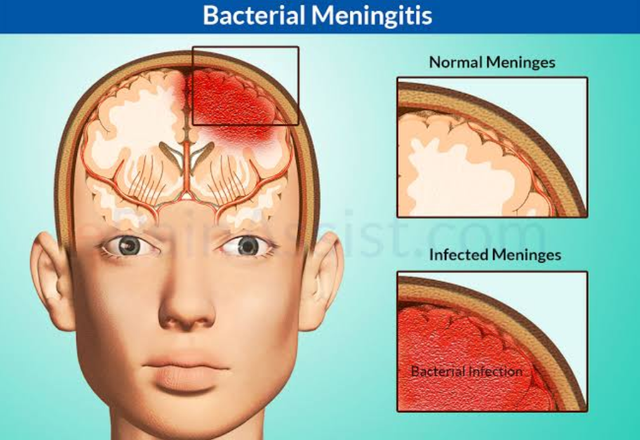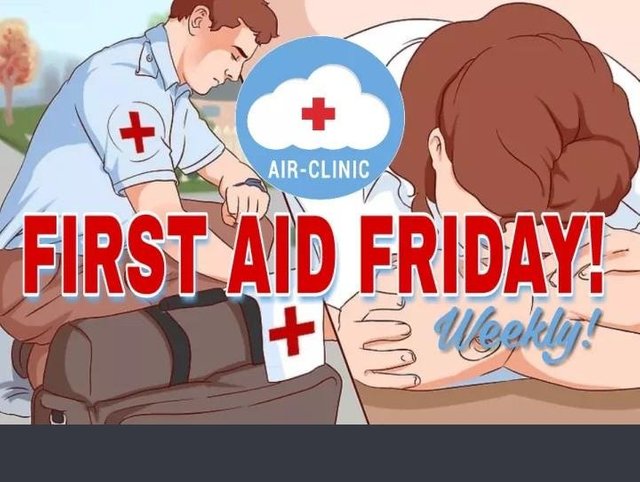First Aid for Meningitis

Hello Air-Clinicians and Friends,
it's First Aid Friday again. :)

The last two weeks we talked about two major neurological emergencies: epilepsy and fainting (syncope). Today I want to invite you to learn about meningitis.
What is meningitis?
Meningitis is a collective term for all kinds of infections of the protective membranes of the brain and the spine, mostly caused by viruses and bacteria, while fungi and parasites are common too - as well as non-infectious versions (spread of cancer or other irritant cells to the membrans, inflammatory processes or reactions on medical drugs).
Limited functionality of the immune system may increase the risk of meningitis, especially after organ transplants, in people with a HIV infection or tuberculosis. Also head trauma and cochlear implants increase the risk of meningitis as they create spots for the entry of bacteria from outside to the brain membrans.
Symptoms
In adults, some headache may be a first symptom. In general it is quickly accompagnied by high fever, neck stiffness, dizzyness and/or sleepiness, intolerance to bright light and/or loud noise. Other symptoms depend on the kind of germs which caused the disease.
In children, fever and neck stiffness are also common but sometimes the kids just seem to feel a little unwell and nearer to crying. Small children may have leg pains, cold legs and arms and they may have an abnormal skin color.
Most later neurological symptoms are not caused by the infection but by the immune system's response.
What to do
Due to the letality of meningitis please bring a patient with clear symptoms of it to a hospital as quickly as possible. A report on the onset of the symptoms should be given and the patient should have his skin color at the arms and legs but also at the face and neck checked regularly so that sings of septicemia - a purple rash of the skin which does not go away by pressing the affected spot - can be recognised quickly.
At the hospital, a blood test and a lumbar puncture are obligatory. Imaging (Computer or Magnetic Resonance Tomography) may help to give an insight on how the brain is affected. Treatment often starts with antibiotics. Persons who had close contact often receive antibiotics too.
Prevention
There are vaccines for some kinds of meningococcus (Neisseria meningitidis), a family of bacteria causing most cases of bacterial meningitis. Vaccines are available for most but not all active lines of meningococcus and for some lines of streptococcus, pneumococcus. Vaccination against Haemophilus influenzae type B (Mumps) is part of children vaccination in many countries; since then this virus' numbers to cause viral meningitis have decreased.
Often the infection is transmitted by small droplets of human body fluids - kissing, sneezing and coughing towards somebody else may cause a transfer but breathing the air around an infected person does not. Viruses causing meningitis spread enterally: by fecal contamination (for example from water).
Thanks for reading!
Yours,
Anne @isarmoewe
Posted from myAirClinic Healthcare App. Download Android Version from PLAYSTORE!
This is very beautiful @isarmore. Very educative and comprehensive!